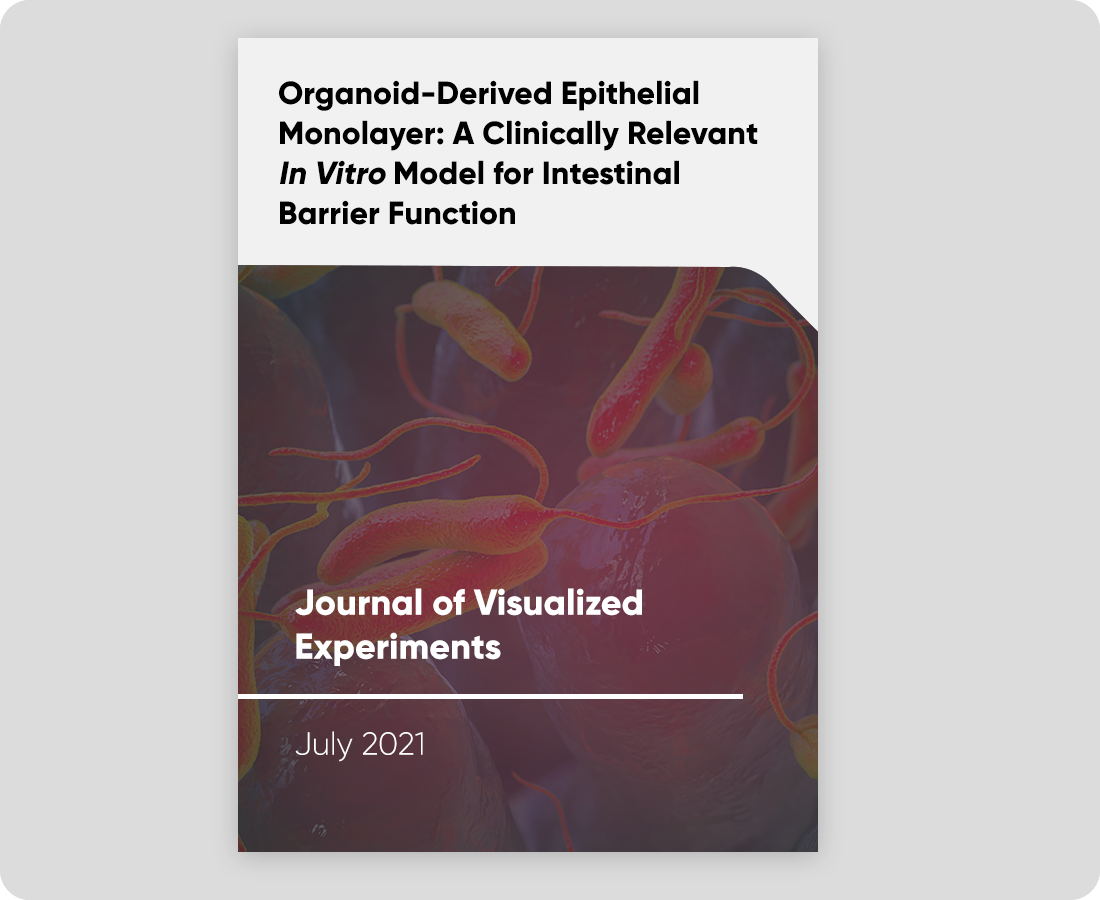Abstract
In the past, intestinal epithelial model systems were limited to transformed cell lines and primary tissue. These model systems have inherent limitations as the former do not faithfully represent original tissue physiology, and the availability of the latter is limited. Hence, their application hampers fundamental and drug development research. Adult stem-cell-based organoids (henceforth referred to as organoids) are miniatures of normal or diseased epithelial tissue from which they are derived. They can be established very efficiently from different gastrointestinal (GI) tract regions, have long-term expandability, and simulate tissue- and patient-specific responses to treatments in vitro. Here, the establishment of intestinal organoid-derived epithelial monolayers has been demonstrated along with methods to measure epithelial barrier integrity, permeability and transport, antimicrobial protein secretion, as well as histology. Moreover, intestinal organoid-derived monolayers can be enriched with proliferating stem and transit-amplifying cells as well as with key differentiated epithelial cells. Therefore, they represent a model system that can be tailored to study the effects of compounds on target cells and their mode of action. Although organoid cultures are technically more demanding than cell lines, once established, they can reduce failures in the later stages of drug development as they truly represent in vivo epithelium complexity and interpatient heterogeneity.
Discover more from HUB:
Explore our organoid screening platform
Discover other publications on patient-derived organoids.



